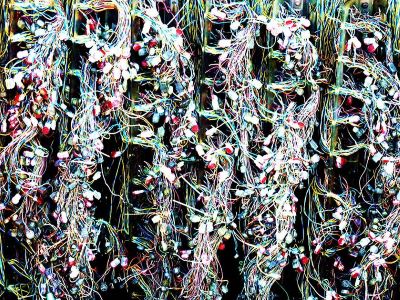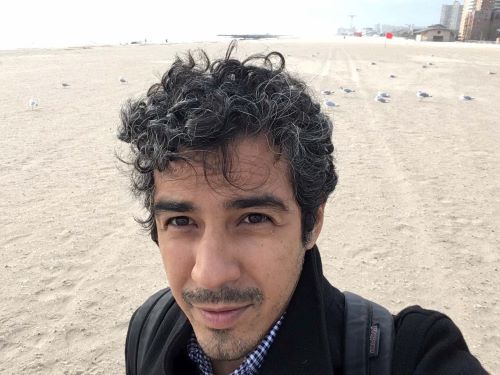I’d never been so close to one.When I found it hidden in the boat,beside the riverbank,its eyes still shifted back and forth,as if sight itself were movement,flight.Its wings were broken, and its long, thin neck,as graceful as the reeds,could only intimate its feathers, slicked with mud.The acid ants, bright red, ate from the gaping flesh,the bird-blood streaming from its side.I stared, afraid to touch:I’d never known about the drawing-out of death,this trembling beyond pain.The crane was drawing labored breathswhen the handle of the oar I grippedshattered its skull.It made no sound, it never squawked,but with a reflex, the kind that life can’t yield,it moved that leg of river grassesonce or twice.I felt a line of cold rise slowly to my neck,my hands shook, since they couldn’t weep,and in my soul, compassionwore shame’s face for the first time.But in the splendor of the bodythat fractures had abased,and as the spirit of the bird cut free,something in me vanished, too, something fragile, dying.That was many years ago, and sometimes, in the afternoons,I watch the crane return, inside me,across the broad sky of my youth,lurching, barely in flight, nearing the ground.I know it’s very tired,as all things that repeat themselves are tired:crickets’ unchanging song,what’s on the other side of windows,the constant weight of blame.But I’m waiting for it to fallso I can draw close again, the oar clutched in my hands. La GrullaNunca había visto uno tan cerca.Cuando la encontré escondida en el bote,a la orilla del agua,todavía sus ojos iban de un lado hacia el otro,como si mirar fuera una forma de moverse,de salir de ahí.Tenía las alas rotas, y su largo cuello,elegante como los juncos,sólo insinuaba algunas plumas y estaba cubierto de lodo.Las hormigas ácidas, rojas, comían de la carne abierta,de la sangre de ave que manaba del costado.Me quedé mirándola sin atreverme a tocarla:yo no sabía de la lentitud agónica,de esa forma de estremecerse más allá del dolor.La grulla respiraba con dificultadcuando el mango del remo que yo empuñabarompió su cráneo.No hizo ningún sonido, no graznó,pero con un reflejo, que no venía del lado de la vida,alcanzó a mover esa pierna de carrizosun par de veces.Yo sentí una columna de frío subir despacio hasta mi nuca,mis manos temblaron porque no sabían llorar,y en mi alma, la misericordiatuvo por primera vez el rostro de la vergüenza.Pero en la majestad de ese cuerpo humillado por las fracturas,en ese desprendimiento del alma del pájaro,se fue algo mío también, frágil y moribundo.Han pasado muchos años desde entonces y, a veces,en las tardes, miro a esa grulla volver dentro de mísobre el cielo abierto de mi juventud,volando apenas, con tumbos, cada vez más cerca del suelo.Yo sé que está muy cansada,como están cansadas las cosas que se repiten;la canción monótona de los grillos,lo que está detrás de las ventanas,o el peso constante de la culpa.Pero estoy esperando a que caiga,para acercarme otra vez con el remo entre las manos.
The Crane
Feature Date
- September 26, 2022
Series
- Translation, What Sparks Poetry
Selected By
Share This Poem
Print This Poem
English Copyright © 2014 by Robin Myers.
All rights reserved.
Reproduced by Poetry Daily with permission.
(Javier Peñalosa M.’s What Comes Back, translated by Robin Myers, is forthcoming from Copper Canyon Press in 2023.)

Robin Myers is a Mexico City-based poet and translator. Her latest translations include Copy by Dolores Dorantes (Wave Books), The Dream of Every Cell by Maricela Guerrero (Cardboard House Press), Tonight: The Great Earthquake by Leonardo Teja (PANK Books), The Book of Explanations by Tedi López Mills (Deep Vellum Publishing), and The Forgery by Ave Barrera (Charco Press, co-translated with Ellen Jones).

Issue IV, Fall 2014
Co-Poetry Editors
Iliana Rocha
Alyssa Jewell
Co-Founder & Managing Editor
Justin Bigos
Waxwing is a literary journal promoting the tremendous cultural diversity of contemporary American literature, alongside international voices in translation. It is the editors’ belief that American literature is thriving, both in terms of aesthetics and cultural inclusiveness. Waxwing believes that American voices are, at their cores, both multicultural and multinational, and so the editors’ mission is to include American writers from all cultural identities — in terms of race, ethnicity, indigenous tribe, gender, class, sexuality, age, education, ability, language, religion, and region — alongside international voices, published bilingually. Waxwing aims to broadcast as widely as possible, in each and every issue, singular voices — and to hear these voices together, in all their harmony and dissonance.
Waxwing is published in October, February, and June of each year. The journal publishes poetry, fiction, essays, interviews, reviews, art, and music, as well as international literature in translation. Waxwing currently accepts submissions of poetry, fiction, nonfiction, and translations; all other content is solicited.
Poetry Daily Depends on You
With your support, we make reading the best contemporary poetry a treasured daily experience. Consider a contribution today.




